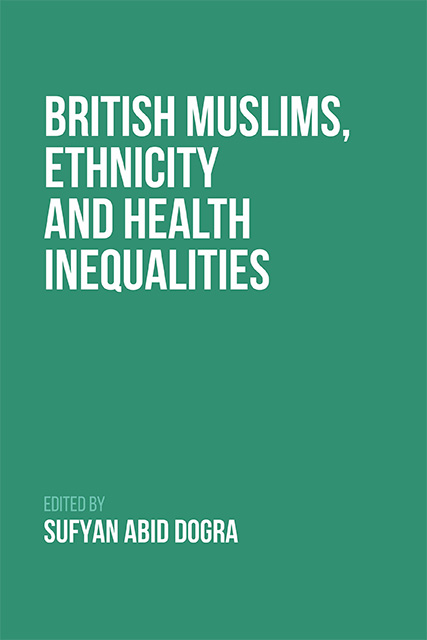13 - The Mental Health of Muslims in a Northern City Such as Bradford
Published online by Cambridge University Press: 18 October 2023
Summary
General Overview of Mental Health in the UK
UK government statistics for the general population show that one in six people will experience a common mental health disorder during any given week (Baker 2018). Furthermore, one in four people in the UK will experience mental health issues at some point during their life (Mind 2019).
Mental health has various facets and is not stagnant, but rather is fluid and can change over time (depending on life circumstances). The impact will be different for each individual depending on their disposition and outlook on life. It can therefore be difficult to construct a whole picture without breaking it down into components by investigating the various causal and confounding factors (Abu-Raiya 2012). The complexity of mental health is intricately entwined into our health and wellbeing and can be in correlation with internal and external contributory factors that have an impact on mental ill-health. These include socioeconomic determinants of health such as poverty, inadequate housing, lack of employment opportunities, mental health, sense of self and belonging, relationships, culture, stigma, unrecognised individual potential, healthcare and access to services, appropriate service provision, diagnosis and treatment, and environmental factors including pollution and lack of green spaces (Perks 1987; McGhee 2003; Trueman et al. 2004; Pickett and Wilkinson 2008; Fink 2010; Shaw et al. 2010; Cook et al. 2013; Prady et al. 2013; Ciftci et al. 2012; Hall 2017; The Health Foundation 2018; Cronin-de-Chavez et al. 2019).
Baker (2018) suggests that there are disparities in the use of Improving Access to Psychological Therapies (IAPT) services and the rates of treatment and recovery, as 13 per cent of referrals for IAPT are from Black and Minority Ethnic (BME) communities, while the BME community makes up 20 per cent of England’s total population. Furthermore, 40 per cent of Asian service users will complete their treatment, compared to 46 per cent of clients of White origin, and 61 per cent of Asian service users will improve compared to 66 per cent of White service users. Finally, only 44 per cent of Asian service users will recover fully, compared to 50 per cent of White service users.
- Type
- Chapter
- Information
- British Muslims, Ethnicity and Health Inequalities , pp. 287 - 312Publisher: Edinburgh University PressPrint publication year: 2023



